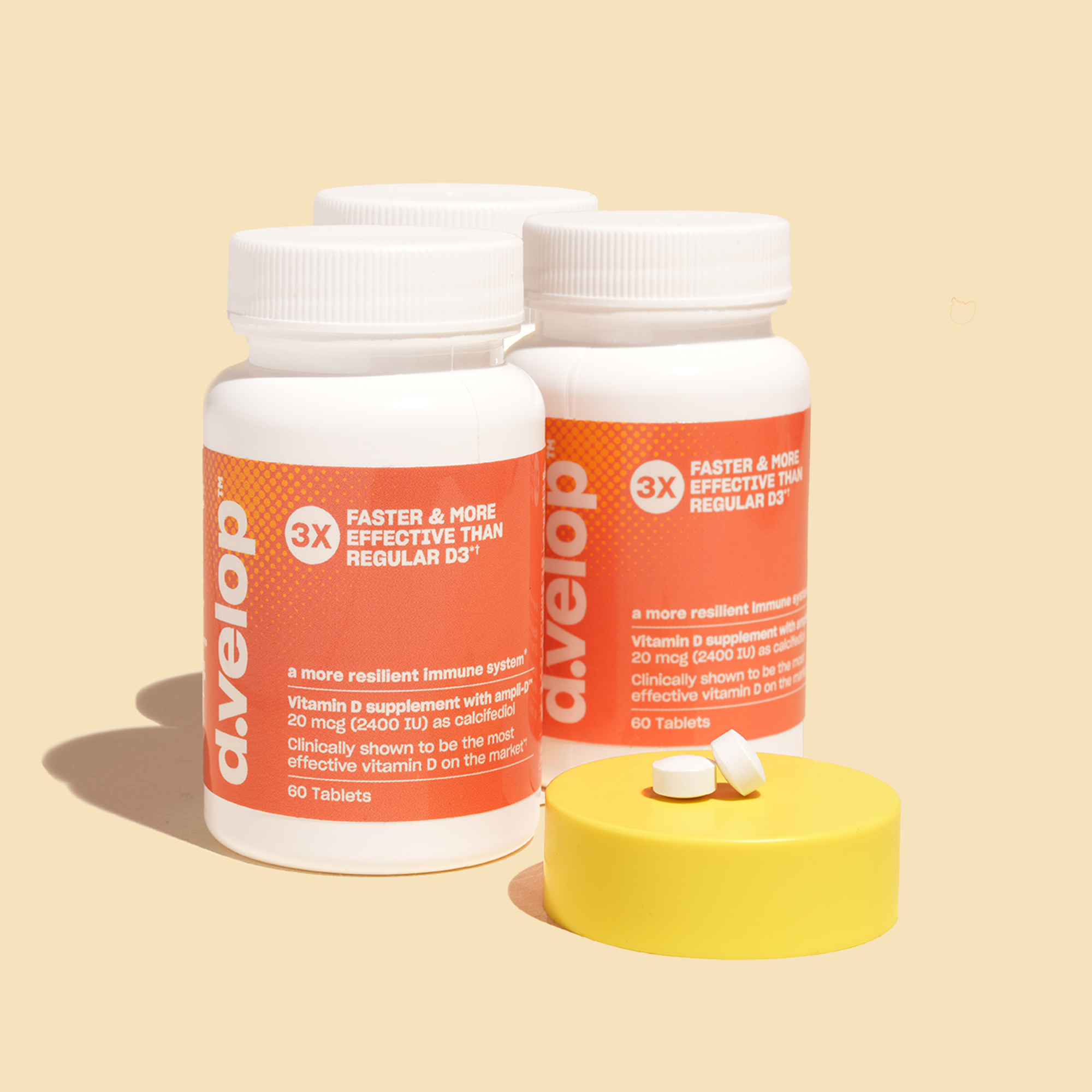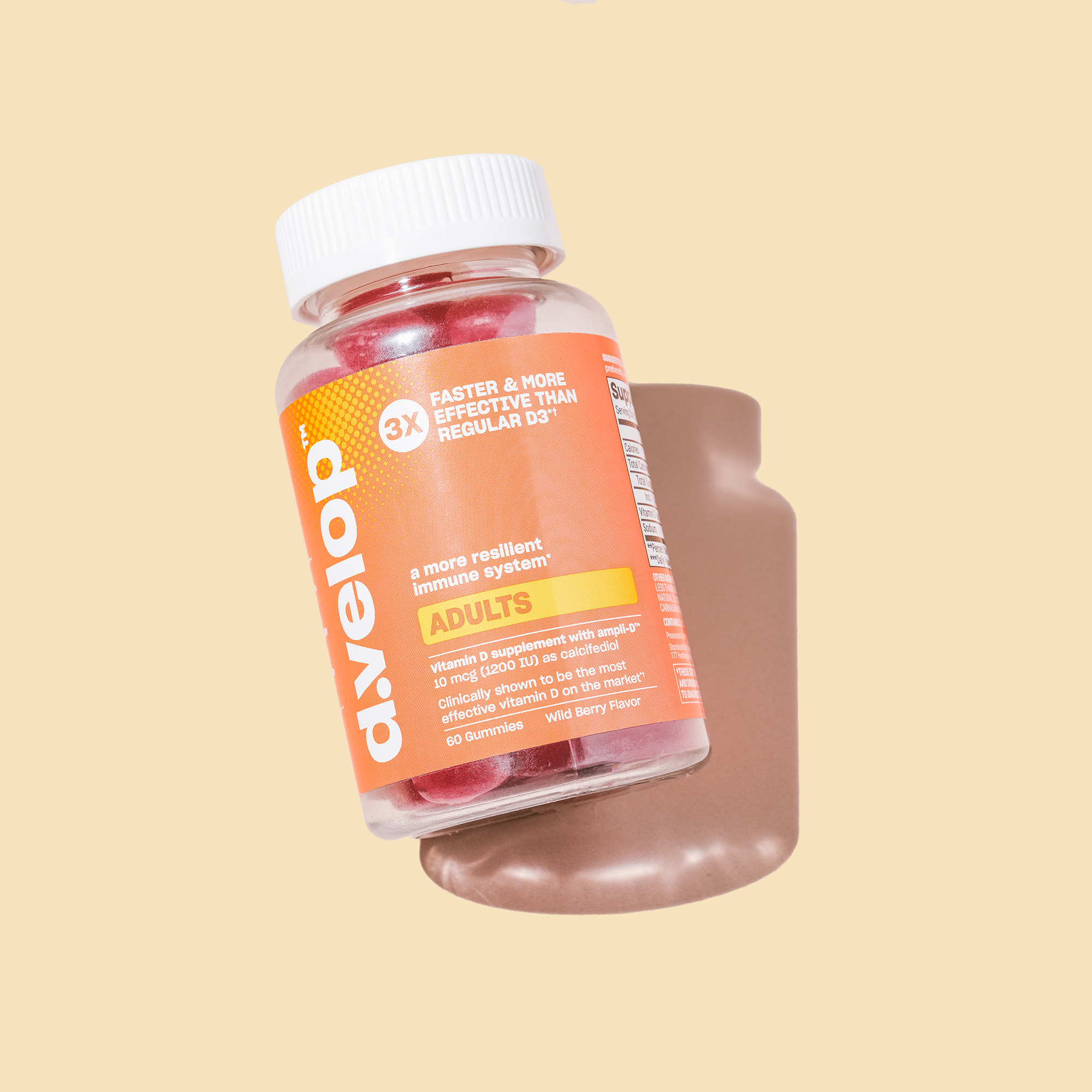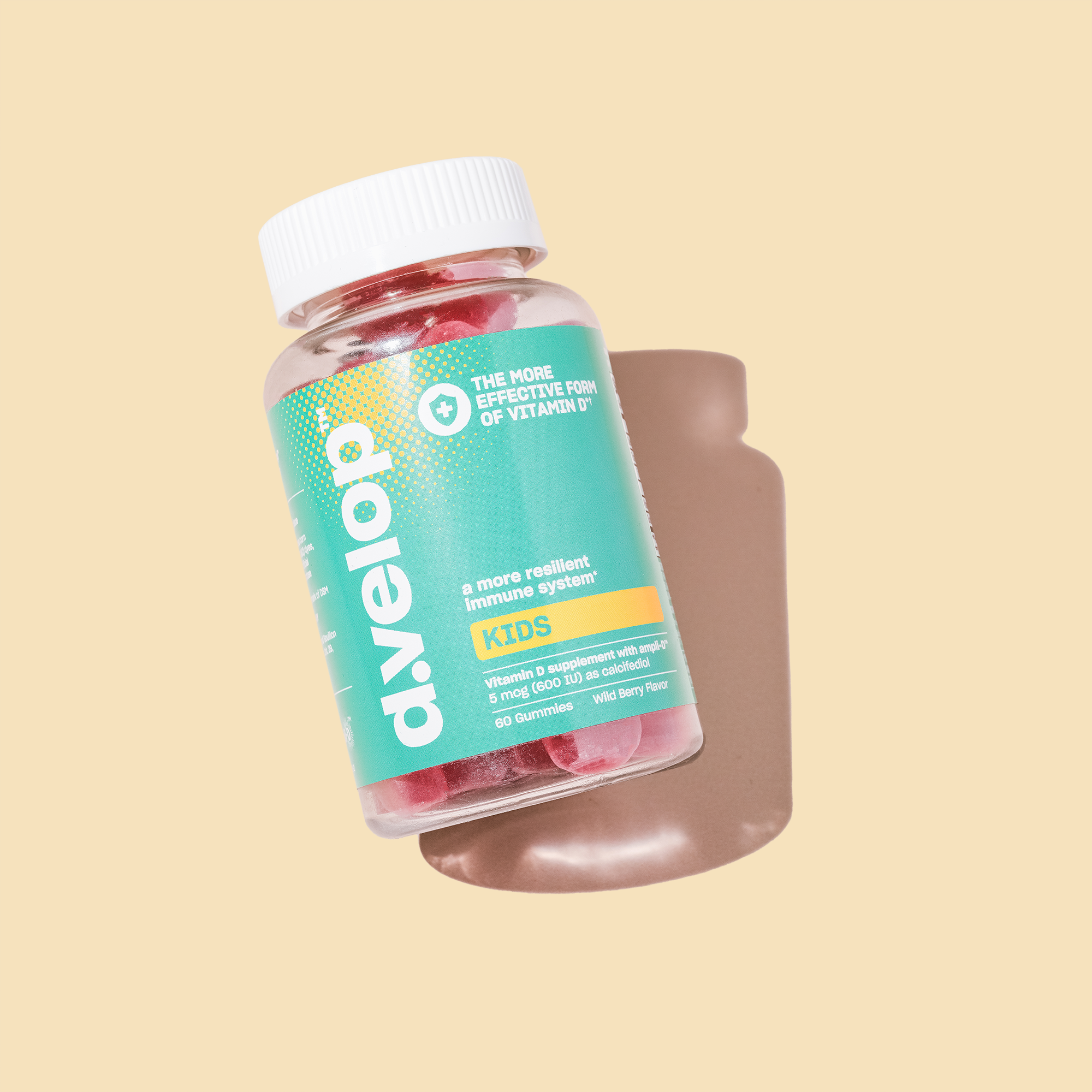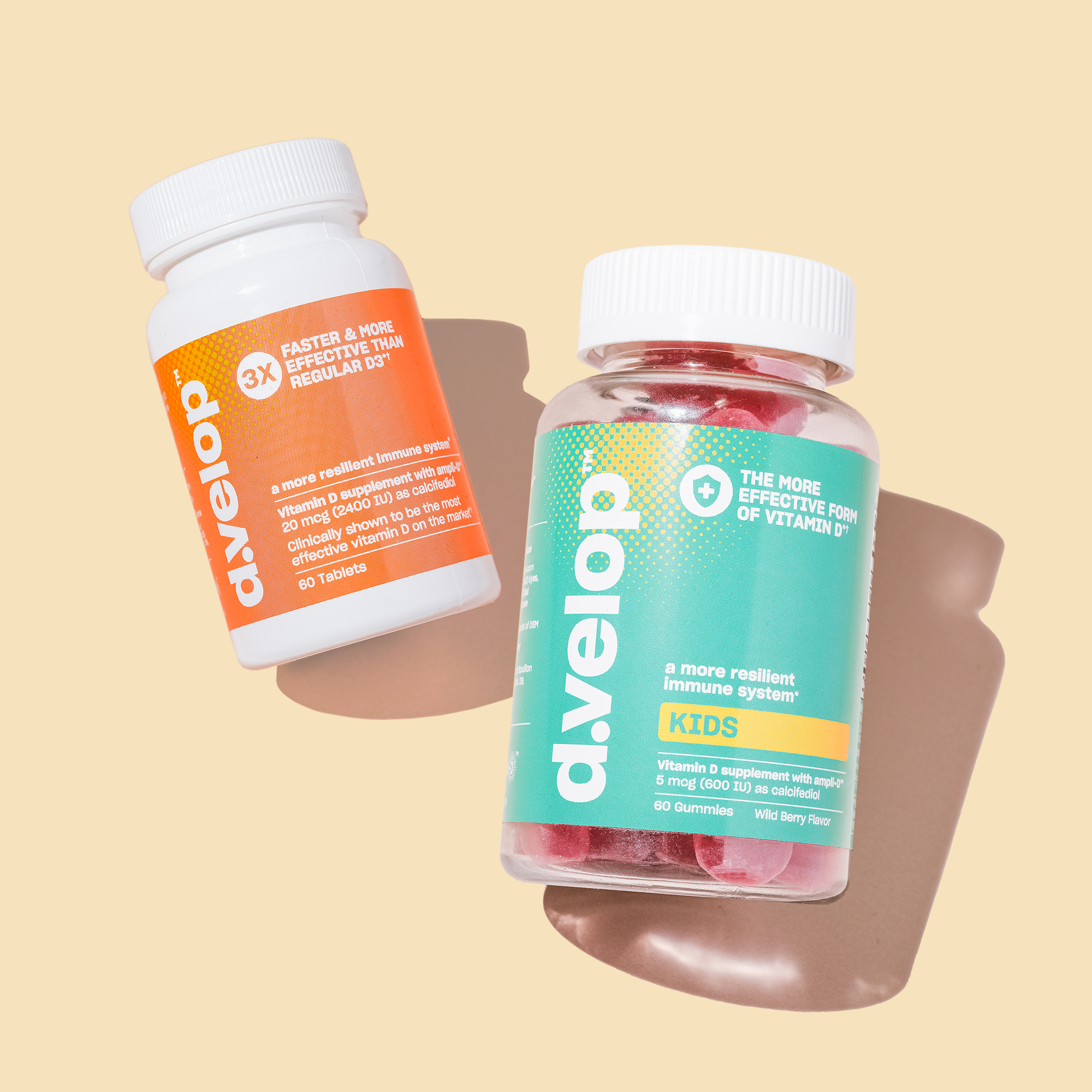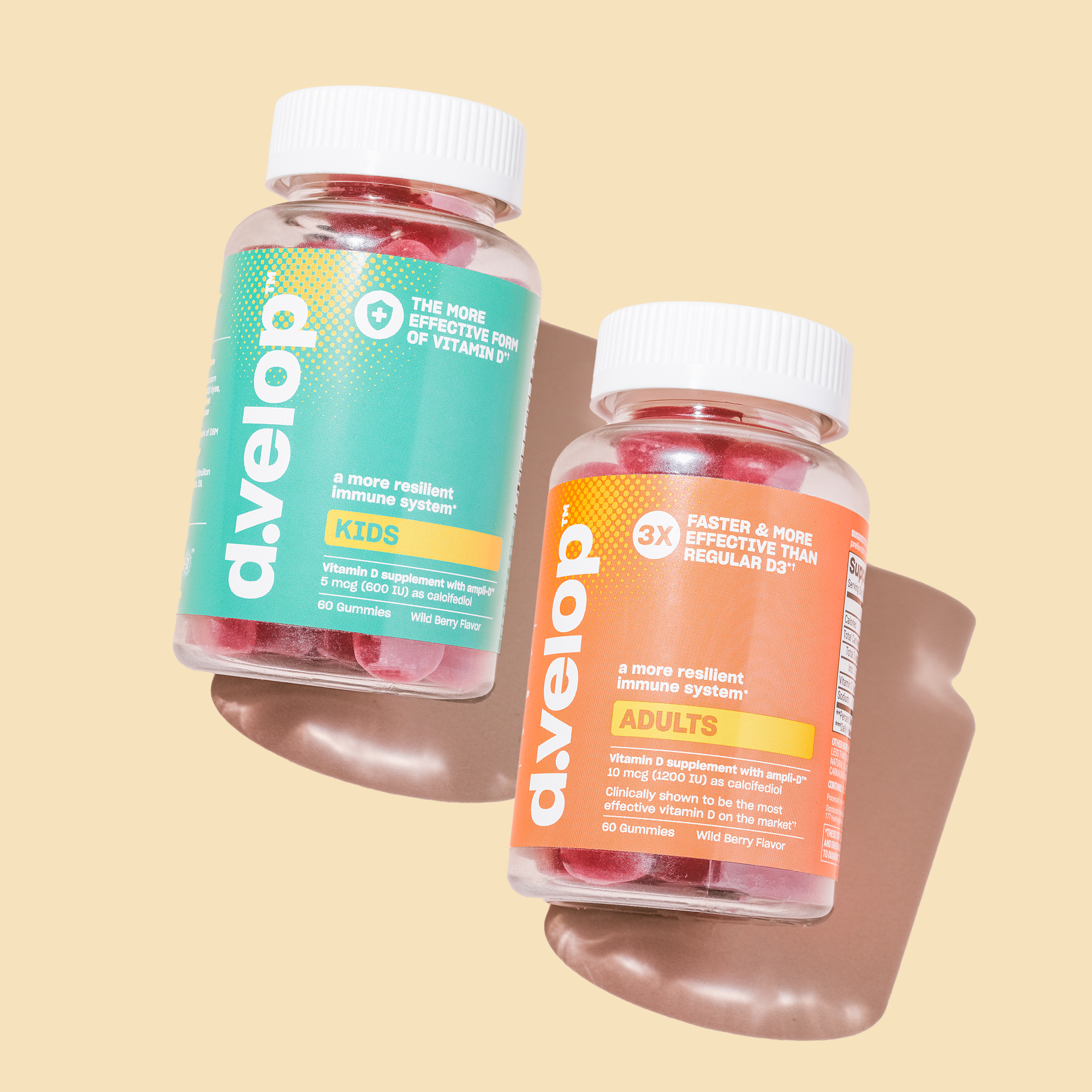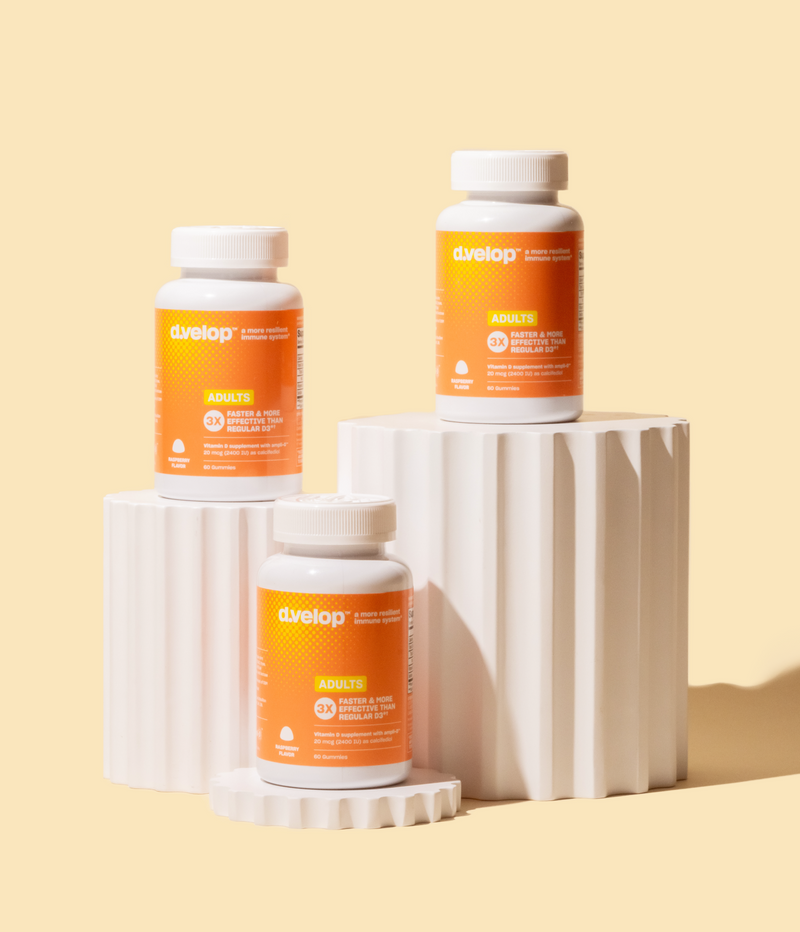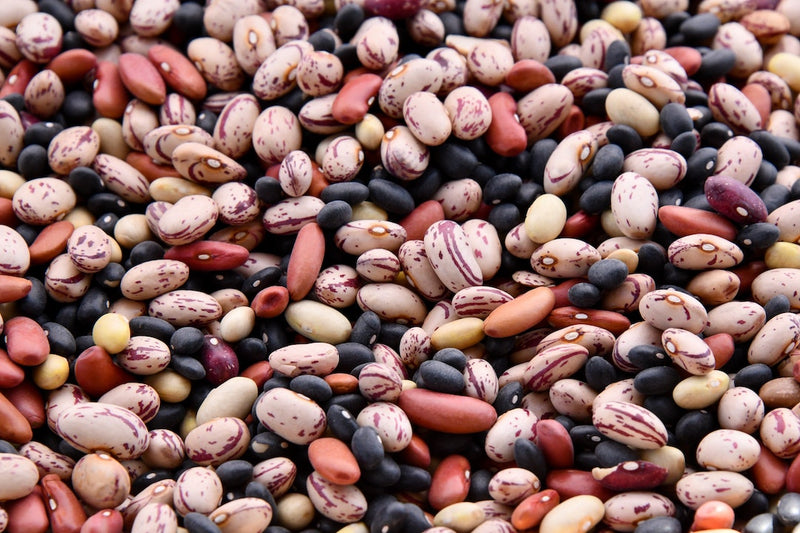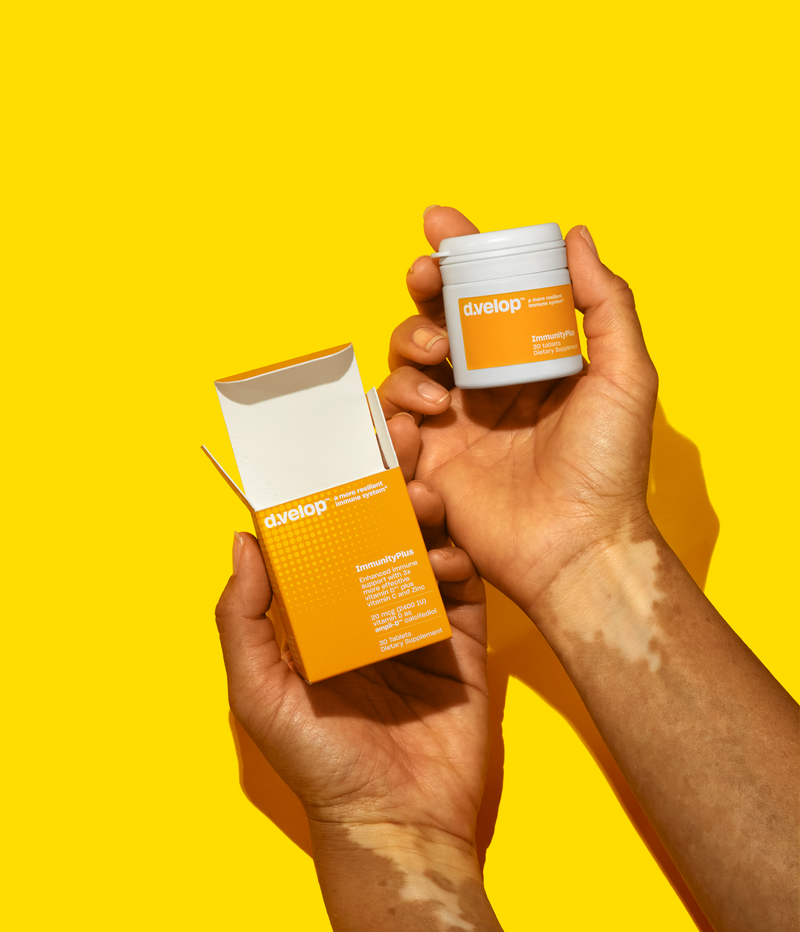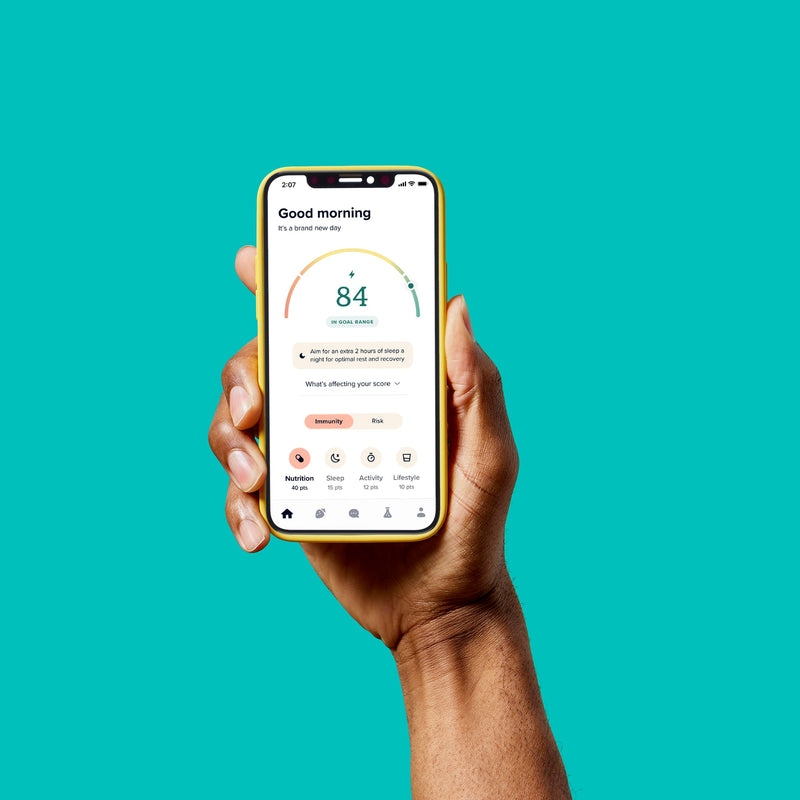Vitamins are important for your health, however, they do have notable differences. Some vitamins are easier to obtain through the diet compared to others, and some vitamins can build up in the body while others do not. So if you’ve ever been told, “take your vitamins” - we’ll cover what you might need to know to make the best choices when it comes to supplementing with vitamins, safely.
How Vitamins Are Absorbed: Fat-Soluble versus Water-Soluble
There are two types of vitamins, fat-soluble and water-soluble.
Water-soluble vitamins are absorbed in the body tissues through water, making them more easily absorbed and transported throughout the body. They can even be easily eliminated from the body to avoid excess accumulation.¹ The water-soluble vitamins include vitamin C and all of the B vitamins including B1, B2, B3, B6, B12, folate, biotin, and pantothenic acid. ¹
Have you ever noticed that your pee is “neon yellow” after taking a multivitamin?
Often the use of a multivitamin supplement or a B-complex supplement might lead to a bright neon yellow-colored urine, this is normal. It is caused by the excess water-soluble vitamins, specifically riboflavin or B2, that your body does not need.
Are deficiencies possible with water-soluble vitamins?
A deficiency of any of the water-soluble vitamins could occur due to dietary restrictions, limiting your intake of those vitamins, or based on genetic, lifestyle, or environmental factors. Those who follow strict plant-based diets may be at risk for deficiencies, specifically in Vitamin B12 as it is abundant in eggs, dairy, and meat products. The best way to detect or confirm a deficiency is to check in with your healthcare provider.
Fat-soluble vitamins are absorbed in the intestines in the presence of fat.² This means they are best absorbed with a meal, especially one that contains a source of dietary fat such as avocados, olive oil, nuts, and seeds. ² The fat-soluble vitamins are vitamin A, vitamin D, vitamin E, and vitamin K.
Are deficiencies possible with fat-soluble vitamins?
Deficiencies can occur not only due to low intake or lifestyle factors but they may also occur if malabsorptive conditions are present such as Chron’s Disease. ³ Fat-soluble vitamins are easily stored within the body. This can be helpful in correcting a deficiency, but can also make it easier to build up to toxic levels. ³ Since it is possible for fat-soluble vitamins to build up in the body, it is important to discuss your supplementation routine with a healthcare provider to make sure you are not getting “too much” of a certain nutrient.⁴
Overall, if you are in good health and maintain a balanced diet, deficiencies in fat-soluble vitamins are rare, with the exception of vitamin D. Unlike the other fat-soluble vitamins, our primary source of vitamin D comes from sunlight with minor sources found in some foods. 42% of Americans are Vitamin D deficient, therefore a dietary supplement may be helpful for those who are unable to reach optimal levels through sunlight and food alone.
Choosing when to supplement and what vitamin supplements to take
When making choices for your supplementation routine, we recommend speaking with your healthcare provider. A Doctor, or Registered Dietitian will be able to help you understand your personal needs alongside your health considerations, making sure you are getting everything you need, but nothing that you don’t and also helping you to create a regimen that works with your lifestyle.
Healthcare providers may also make recommendations around vitamin or nutrient testing to check your current levels and assess any gaps.
Take control of achieving optimal vitamin D levels with the d.velop™ Vitamin D Test Kit, the d.velop™ app and d.velop™ Vitamin D products.
At the end of the day, vitamins are important for optimal health and functioning, however, they should not be treated equally, Knowing your current nutrient status allows you to make the most appropriate decisions with supplementation so you can make the most out of your healthy lifestyle. If you are curious about your vitamin or supplementation needs, check in with your healthcare provider and discuss your dietary habits and current routine.
Author:
Jen Hatz MS, RD, CSSD, LDN, CSCS
References
- Lykstad J, Sharma S. Biochemistry, Water Soluble Vitamins. In: StatPearls. StatPearls Publishing; 2022. Accessed March 28, 2022. http://www.ncbi.nlm.nih.gov/books/NBK538510/
- Siener R, Machaka I, Alteheld B, Bitterlich N, Metzner C. Effect of Fat-Soluble Vitamins A, D, E and K on Vitamin Status and Metabolic Profile in Patients with Fat Malabsorption with and without Urolithiasis. Nutrients. 2020;12(10):3110. Published 2020 Oct 12.
- National Research Council (US) Committee on Diet and Health. Diet and Health: Implications for Reducing Chronic Disease Risk. Washington (DC): National Academies Press (US); 1989. 11, Fat-Soluble Vitamins. Available from: https://www.ncbi.nlm.nih.gov/books/NBK218749/
- Ham M, Longhi MS, Lahiff C, Cheifetz A, Robson S, Moss AC. Vitamin D levels in adults with Crohn's disease are responsive to disease activity and treatment. Inflamm Bowel Dis. 2014;20(5):856-860. doi:10.1097/MIB.0000000000000016
